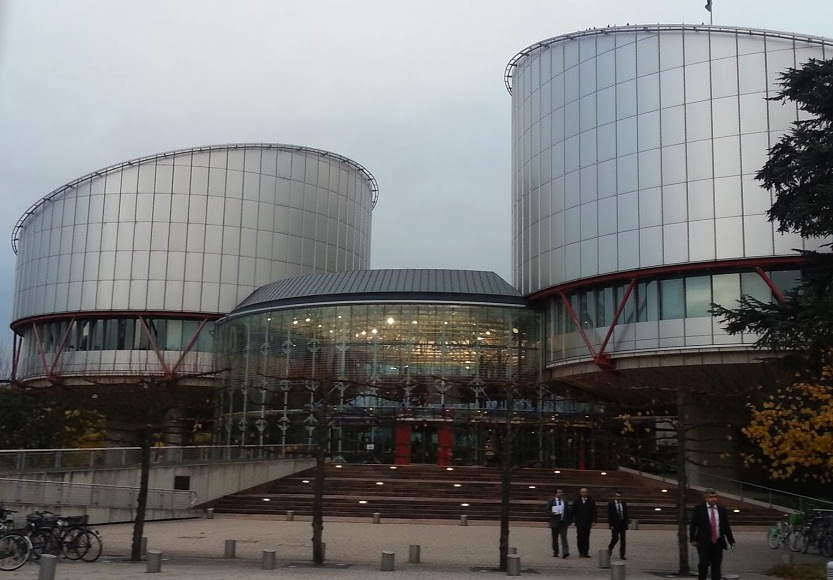
Jan 23, 2017
On 16 January 2017, the ICJ with other civil society organizations submitted a third-party intervention in the case of E.S. v. Spain before the European Court of Human Rights.
The case (application no. 13273/16) arose from the attempted removal of a gay asylum applicant to Senegal. The third-party submissions focus on the relevance of the Refugee Convention — as interpreted by a number of domestic courts — and of the EU asylum acquis and the EU Charter of Fundamental Rights to the determination of the scope and content of non-refoulement obligations under Article 3 of the European Convention on Human Rights (ECHR) of those Contracting Parties that are also EU Member States.
The submissions, in particular, address the following:
- Enforced concealment of one’s same-sex sexual orientation constitutes persecution under refugee law and is incompatible with the ECHR, in particular, Article 3;
- The criminalization of consensual same-sex sexual conduct gives rise to a real risk of Article 3 prohibited treatment, thus triggering non-refoulement obligations under that provision of the Convention; and
- The risk of persecution based on sexual orientation in Senegal.
The comments drew upon the European Court’s case-law; authoritative interpretation of other applicable sources of international law and comparative international law.
The ICJ made the submissions jointly with the Human Dignity Trust, the European Council on Refugees and Exiles, the European Region of the International Lesbian, Gay, Bisexual Trans and Intersex Association (ILGA-Europe) and the AIRE Centre (Advice on Individual Rights in Europe).
SPAIN-ECtHR joint amicus in ES v SPAIN-Advocacy-LegalSubmission-2017-ENG
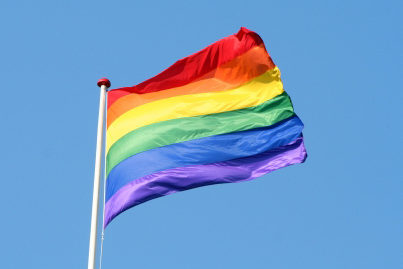
Nov 24, 2016
In April and July this year, the ICJ and four other NGOs filed two sets of written submissions with the Constitutional Court of Romania in the case of Coman Relu Adrian, Hamilton Robert Clabourn and Association Accept v. General Inspectorate for Immigration and Ministry of Home Affairs.
The case concerns the Romanian authorities’ refusal to recognize either de facto or de jure the same-sex marriages of migrant EU citizens with third-country nationals.
In their original original third-party intervention of April 2016, the ICJ, the AIRE Centre, ECSOL, FIDH and ILGA-EUROPE argued that such refusal violates relevant EU law and the European Convention on Human Rights.
In their supplementary intervention, filed in July 2016, the five NGOs made additional written submissions to the Constitutional Court of Romanian in light of the judgment by the European Court of Human Rights in the case of Taddeucci and McCall v. Italy of 30 June 2016.
romania-cc-joint-amicus-re-third-country-national-spouse-legal-submissions-april-2016-eng
romania-cc-joint-amicus-re-third-country-national-spouse-legal-submissions-july-2016-eng
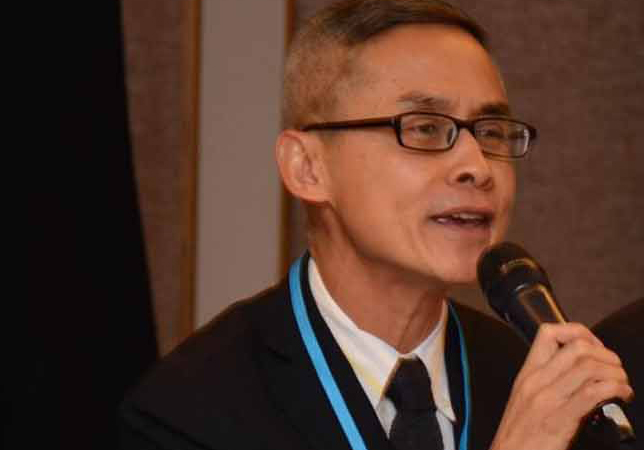
Nov 11, 2016 | News
The ICJ today condemned efforts by a group of States led by the African Group of the UN Members States to halt the work of the UN Independent Expert charged with protecting people from discrimination and violence based on sexual orientation and gender identity (SOGI).
The organization said that the move constituted an unwarranted interference with the independence and capacity of the Human Rights Council to discharge its mandate for the promotion and protection of all human rights and fundamental freedoms for all, without discrimination.
On 3 November 2016 Botswana on behalf of the African Group introduced a draft resolution before the Third Committee of the UN General Assembly in New York questioning the authority for the mandate of the Independent Expert Vitit Muntarbhorn (photo) and deferring action indefinitely on confirming the mandate’s establishment.
The ICJ is calling on the African Group to withdraw its draft resolution.
If a vote on the resolution does go ahead, the ICJ said that States must resoundingly reject it and send a signal to the world that the rights of all persons must be protected on an equal basis and that the UN Human Rights Council is capable of acting to secure such protection.
The ICJ considers that adoption of the resolution would represent a dramatic setback to the Human Rights Council’s efforts to tackle violence and discrimination based on SOGI.
Each year, the Third Committee of the UN General Assembly considers the Human Rights Council’s annual report.
This year, that report contains Human Rights Council resolution 32/2 on Protection against violence and discrimination based on sexual orientation and gender identity.
The Human Rights Council’s adoption of resolution 32/2 on 30 June 2016 made history by establishing the first-ever mandate of an Independent Expert of the Human Rights Council on protection against violence and discrimination based on SOGI.
In September this year the Human Rights Council appointed Prof. Vitit Muntarbhorn of Thailand to discharge this mandate.
Since then, Prof. Muntarbhorn has duly taken up his position and has begun fulfilling this work.
The draft resolution that the African Group has tabled at the Third Committee questions the basis in international law for the establishment of the Independent Expert’s mandate on SOGI and seeks to defer action on Human Rights Council resolution 32/2 indefinitely.
Since the Human Rights Council was set up in 2006, none of its resolutions mandating the establishment of a Special Procedure has ever been challenged by the General Assembly.
The ICJ considers that the adoption of the African Group’s resolution would set an extremely detrimental and regressive precedent by blocking the Human Rights Council from carrying out its own mandate.
It would undermine the UN’s preeminent human rights body’s overall authority by sapping its independence and ability to fulfil its mandate for the promotion and human rights for all without discrimination as it sees fit.
Contact
Livio Zilli, ICJ Senior Legal Adviser and UN Representative, t: +41 22 979 38 23 ; e: livio.zilli(a)icj.org
Read also
What is the Future of the SOGI Mandate and What Does it Mean for the UN Human Rights Council?
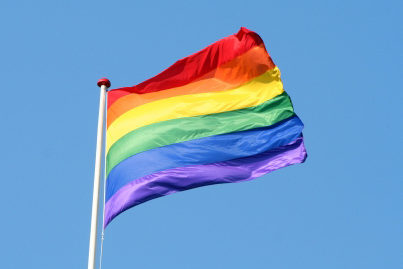
Aug 18, 2016
Today, the ICJ released a briefing paper on the Transgender Persons (Protection of Rights) Bill, 2016, asking that it be withdrawn and revised to be consistent with international human rights law, and directions of the Indian Supreme Court.
The briefing paper answers key questions about the history of this Bill, what measures it seeks to introduce, outlines the ICJ’s key concerns about the Bill as currently drafted – including key omissions – in light of directions of the Supreme Court and applicable international human rights law.
“It is important to have a law guaranteeing transgender rights in India,” said Sam Zarifi, ICJ Asia director.
“However, any such legislation must be consistent with the spirit and directions of the Supreme Court in the case of NALSA v UOI and with international human rights law”.
The Transgender Persons (Protection of Rights) Bill, 2016 was approved by the Cabinet last month.
It was introduced in the Lok Sabha (lower house of Parliament) on 2 August 2016 and is currently pending.
The Bill’s definition of who is “transgender person”, the process of gender recognition it outlines, as well as the lack of adequate provisions on employment, education, anti-discrimination measures, and penalties for offences committed, are deeply problematic and at odds with the Supreme Court’s directions in the judgment of the Supreme Court in the case of NALSA v UOI.
“While a comprehensive transgender rights bill is long overdue in India, the problems and omissions in the current Bill will undermine the progress made on transgender rights in India,” Zarifi said.
“The government must immediately withdraw the Bill, meaningfully consult with the transgender community, and substantially revise its provisions such that it comprehensively protects the rights of all transgender people in India,” he added.
Background
In 2014, in the case of NALSA v UOI, the Supreme Court affirmed transgender persons’ right to their self-identified gender, directed the government to grant legal recognition of the same, and to take specific steps to ensure equality and non-discrimination for transgender persons.
States and government departments have begun to take piecemeal measures to implement the directions in the NALSA judgment, however several aspects of the decision remain unimplemented. See ICJ Briefing Paper on the implementation of the NALSA decision .
In April 2015, the Rajya Sabha (Upper House of India’s Parliament) passed the Rights of Transgender Persons Bill 2014, which was a private member’s Bill. Simultaneously, the government was developing its own draft of a transgender rights bill, which has now been introduced in Parliament. For more details see here.
INDIA-TG BILL CRITIQUE-Advocacy-Analysis brief-2016-ENG (full text, PDF)
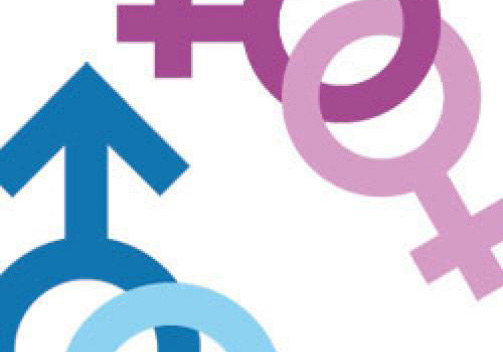
Aug 10, 2016 | News
A law in Belize that disproportionately affects gay men was today ruled unconstitutional by the country’s Supreme Court after a three-year wait for the judgment.
Section 53 of Belize’s Criminal Code, an old British colonial law, banned ‘carnal intercourse against the order of nature’ and thereby made consensual gay sex between adult men in private illegal in Belize. Today the legal provision has been ruled ‘unlawful’ to the extent that it can be applied to same-sex activity.
In handing down the judgment, Chief Justice Kenneth Benjamin agreed that Section 53 amounts to a violation of the constitutional rights to dignity, privacy, equality and non-discrimination on grounds of sex. He found that there was no justification in the form of ‘public morality’ and therefore the law must be modified. He awarded costs to the Claimaint, Caleb Orozco.
The case is the culmination of years of work by a Caribbean-led coalition of lesbian, gay, bisexual and trans (LGBT) activists, academics and legal experts. The individual claimant is Caleb Orozco, a Belizean gay man and prominent LGBT human rights advocate.
Today Orozco said: “This is the first day of my life in which it is legal for me to be me. This is a history-making judgment for Belize, the country which I am proud to call home. Our judicial system has been proven to be robust and unprejudiced. This judgment should give other oppressed minorities the confidence to speak up and stand up for themselves in situations of human rights abuse in the way I have. Our courts really are there to protect us all. In striking down Section 53, Belize has also rejected a poisonous remnant of colonial rule. We have reaffirmed ourselves as a society built on dignity and respect for all our people. This is a proud day.”
Simone Hill, President of the United Belize Advocacy Movement (UNIBAM) said before the judgment: “This is about our human rights. As citizens of this country our rights should be respected without fear or favour. Win or lose, we will continue the fight to ensure the victory of the protection of our rights.”
The case was heard in May 2013 and presided over by Chief Justice Kenneth Benjamin. Today’s ruling – some three years and three months later – upholds Belize’s LGBT (lesbian, gay, bisexual and trans) community’s human rights to privacy, equality, dignity and non-discrimination, all of which are protected under the country’s constitution.
A group of churches, namely the Roman Catholic Church of Belize, the Belize Church of England Corporate Body, and the Belize Evangelical Association of Churches were admitted as ‘Interested Parties’ in the case opposing Mr Orozco’s claim and seeking to maintain the criminalisation of gay men in Belize.
Meanwhile, the International Commission of Jurists, the Commonwealth Lawyers Association and the Human Dignity Trust were joint ‘Interested Parties’ in support of Mr Orozco.
Téa Braun, Legal Director of the Human Dignity Trust, said:
“This is a great victory for human rights and the rule of law.
Intimacy in private between two adults of their own free will should not be a matter for the law. The only outcome of such laws is to blight the lives of members of the LGBT community by fostering a climate of oppression and state-sponsored discrimination. The bravery and resilience of colleagues across the Caribbean who have worked tirelessly on this case is an inspiration. Caleb Orozco is a hero and a trailblazer. The Human Dignity Trust is immensely proud to have worked alongside him and his legal team.”
Alex Ward, President of the Commonwealth Lawyers Association, which passed a resolution on the ‘Decriminalisation of Sexual Orientation’ in 2009, said: “This is a sound and just ruling which we whole heartedly welcome. It is the CLA’s mandate to uphold the rule of law across the Commonwealth and today marks a considerable success in maintaining the integrity of the Belizean Constitution and protecting its citizens’ fundamental rights.”
Livio Zilli, Senior Legal Adviser at the International Commission of Jurists (ICJ), said: “The ICJ hails the courage, commitment and tenacity of the entire LGBT movement in Belize, and Caleb Orozco’s in particular, and salutes this decision as a critical contribution to upholding people’s human rights whatever their sexual orientation or gender identity.”
While convictions under Section 53 in Belize were rare, the law carried a sentence of up ten years’ imprisonment effectively for consensual homosexual sex.
There are still 76 legal jurisdictions across the world that make same-sex intimacy between consenting adults a crime. Of these, 38 countries are, like Belize, members of the Commonwealth.
The Interested Parties that joined in support of the case were represented by Godfrey Smith SC and Debevoise & Plimpton led by Lord Goldsmith QC. Tim Otty QC, founder of the Human Dignity Trust, Tristan Jones, Jessica Gladstone, Nicola Leslie, Conway Blake, were key members of the victorious legal team.









